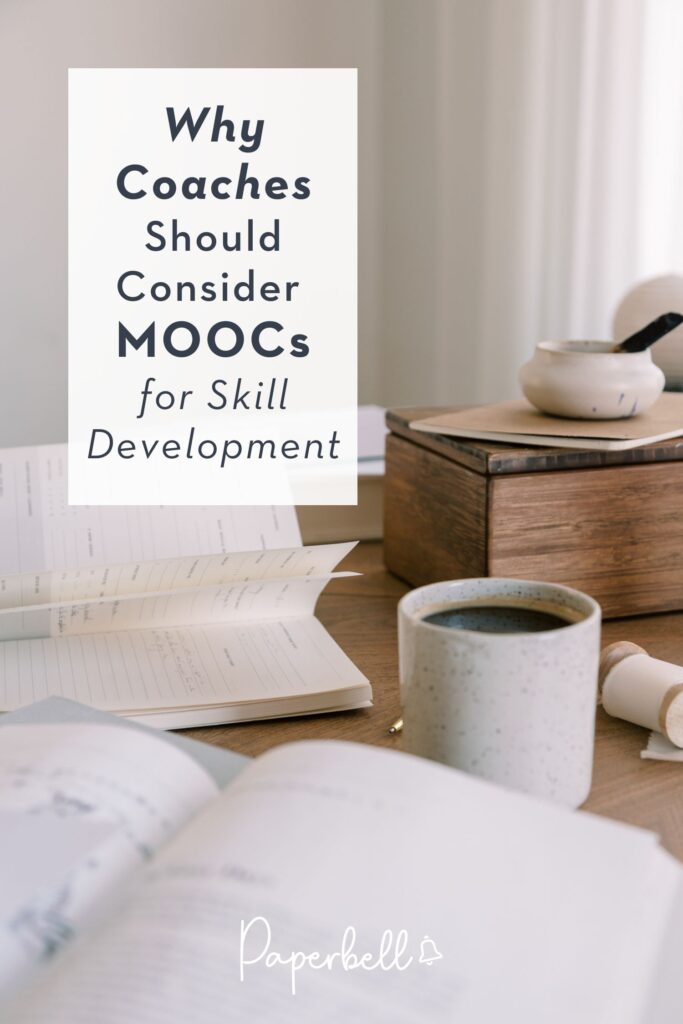If you’re aching to learn more about coaching without breaking the bank or committing to a year-long certification, Massive Open Online Courses (MOOCs) can be a great alternative.
They’re affordable, allow you to learn at your own pace, and offer insights into specific coaching techniques and niches. Whether you’re just starting coaching or looking to specialize, here’s how MOOCs can help your career development.
What Are Coaching MOOCs?
MOOCs are online programs designed to make high-quality education accessible to anyone with an internet connection. For coaches, MOOCs are an affordable and flexible way to learn new skills and techniques related to their niche and stay up-to-date with industry trends.
Some of these courses are more introductory, covering the fundamentals of coaching, while others focus on specific coaching methodologies. They can be a valuable resource for both aspiring and experienced coaches.
Why Should Coaches Consider MOOCs?
Traditional coaching certifications can cost thousands of dollars and require a commitment of anywhere between a few months to a year. This might not be feasible for everyone. MOOCs provide a more accessible alternative, allowing coaches to:
- Learn at their own pace while managing their coaching practice.
- Explore specialized topics that support their career advancement.
- Test the waters before committing to a full-fledged certification program.
MOOCs can be a cost-effective way to expand your expertise, even if you have a limited schedule for learning.
Top MOOC Platforms with Coaching Courses
Here are some of the most popular MOOC platforms that offer affordable self-study courses related to coaching.
Coursera
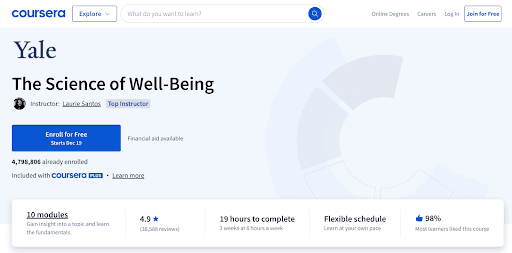
Coursera is renowned for its partnerships with leading universities and institutions like Yale and Google. It offers structured programs with video lectures, quizzes, and peer-reviewed assignments. Certificates from Coursera and its partner institutions are widely recognized so they can add credibility to your profile.
You can find a variety of courses related to coaching, like those about the Neuroscience of Leadership or The Science of Well-Being. The range for course duration and prices is quite broad but with Coursera Plus, you can take most courses and earn certificates for $59 a month.
edX
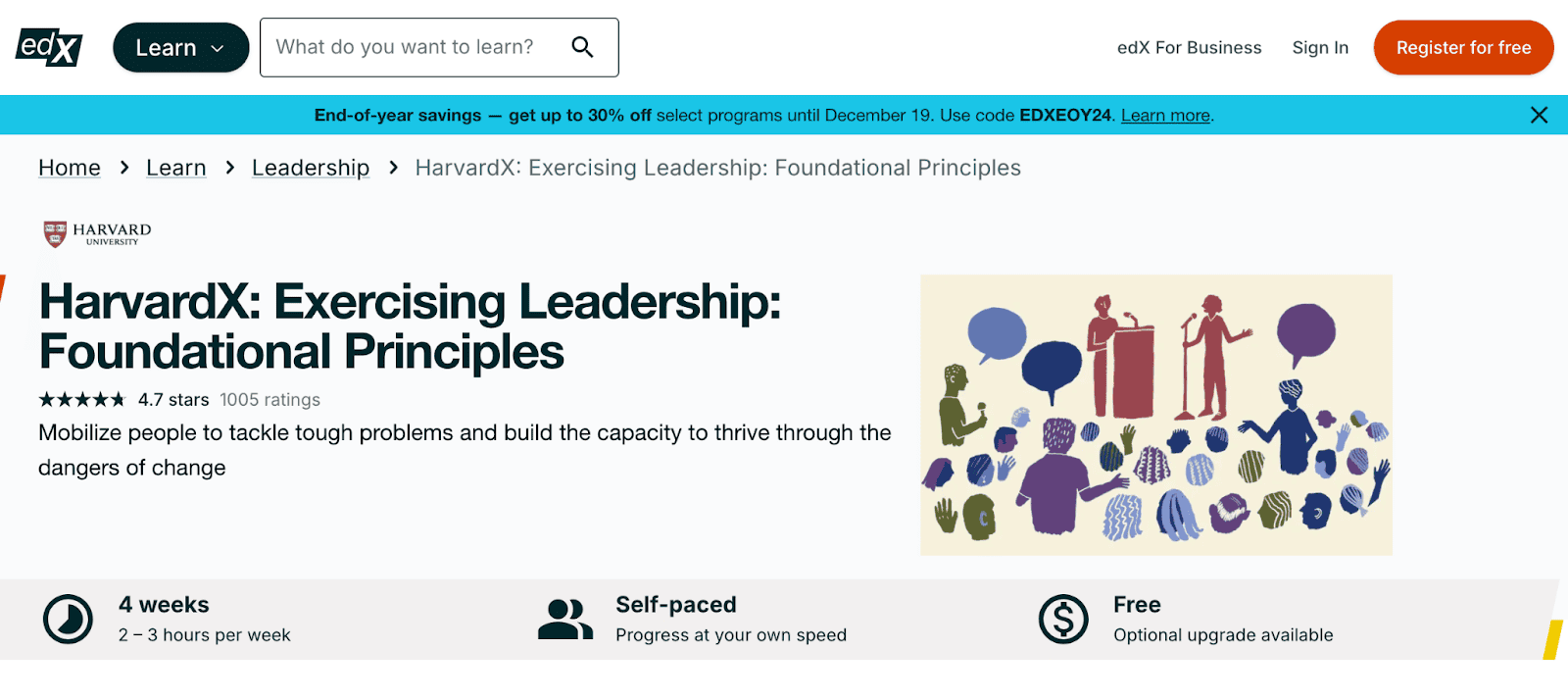
Another great resource for academic courses, edX has partnerships with universities like Harvard and MIT. Its emphasis on research-backed material makes it ideal for coaches seeking credible, theoretical knowledge about certain subjects.
The courses are a mix of bite-sized topics and more in-depth certifications, focusing on areas like emotional intelligence and leadership. Most run between 4-8 weeks and range from $50 for basic courses to $300 for verified certificates, giving you options for both casual learning and professional upgrades.
Udemy
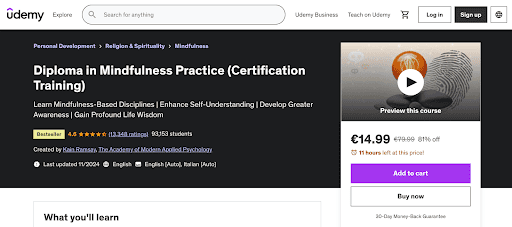
Udemy is perfect if you’re on a budget and want access to a wide range of topics, from life coaching to mindfulness. While not as formal as other university-associated platforms, Udemy has some solid coaching courses taught by specialized experts.
Most courses are just a few hours long and often available for $15–$25. You get lifetime access to every course you purchase, so you can learn at your own pace and revisit materials whenever you need a refresher.
LinkedIn Learning
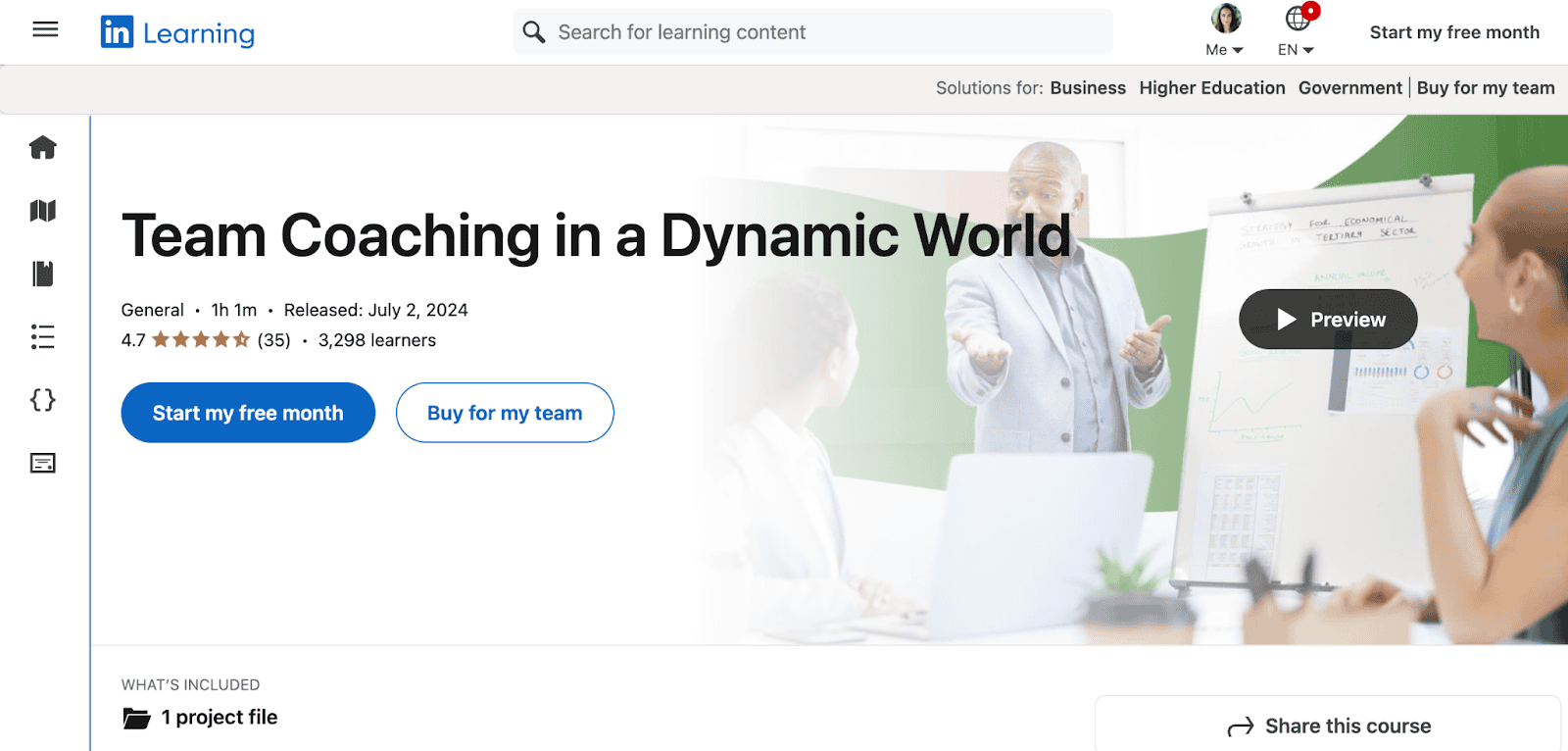
LinkedIn Learning is another decent alternative if you want to upskill with short, practical courses. Its integration with LinkedIn allows you to showcase completion badges directly on your profile.
You can find short, actionable coaching courses related to leadership, team coaching, and communication. For $39.99 a month, you get unlimited access to their library of self-paced content.
MOOC vs. Traditional Coaching Certification
Both online courses and major certification programs have their advantages, depending on what your expectations are. Here are some pros and cons of each.
| Category | Pros | Cons |
| MOOC | Cost-effective: MOOCs are significantly cheaper than traditional certifications.Flexible pace: Learn at your own rhythm without fixed deadlines.Wide variety of topics: From coaching fundamentals to specific niches.No prerequisites: Open to anyone regardless of background. | Less credibility: Certificates from MOOCs don’t hold the same weight as those from accredited coaching programs.Less practical: Usually don’t include live classes, one-on-one mentoring, or peer coaching. |
| Traditional Certification | Industry recognition: Certificates from accredited programs are globally recognized.In-depth training: Comprehensive and practical training with experienced teachers and master coaches about coaching methodologies and skills.Networking opportunities: Access to a community of coaches and mentors. | Costly: Requires significant financial investment, often thousands of dollars or more.Time-intensive: Requires a commitment to a set number of hours a week for several months or a year. |
If you’re unsure which option is best for you, you can start with an affordable online coaching course before committing to something more substantial.
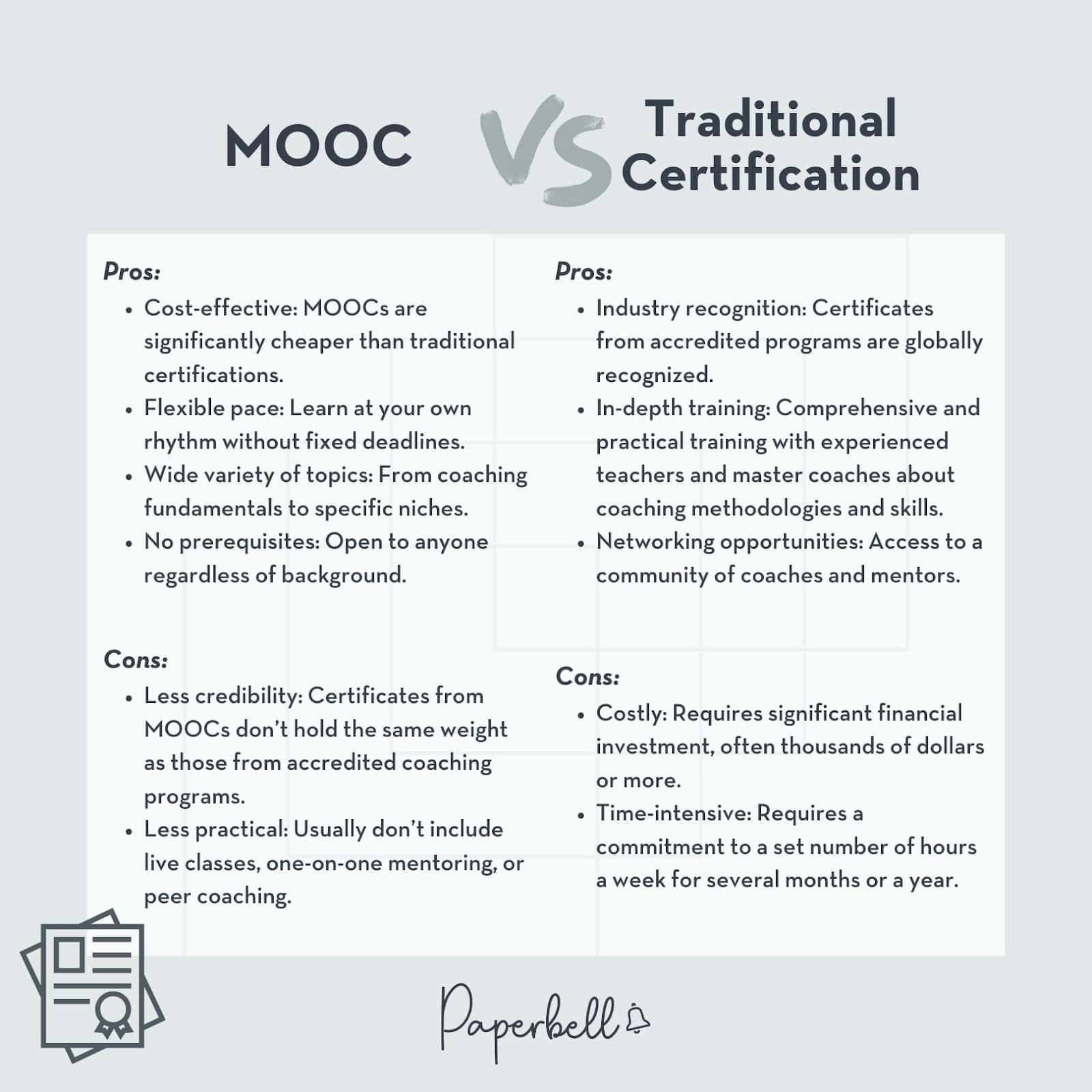
Coaching MOOC FAQs
Are MOOC Certificates Recognized in the Coaching Industry?
While MOOC certificates may not carry the same weight as those from ICF-accredited programs, they demonstrate a commitment to professional growth and continuous learning.
Many clients value practical skills and results over formal credentials. Highlighting relevant MOOC training on your website and professional profiles can enhance your credibility, especially when paired with relevant experience and testimonials.
How Much Do Coaching MOOCs Cost?
The cost of coaching MOOCs varies by platform and course. Many platforms like Coursera and edX offer free access to course materials with an optional paid certificate, typically ranging from $50 to $200. Udemy courses are often priced between $15 and $100, while LinkedIn Learning offers subscription plans starting at $39.99 a month.
Can MOOCs Replace Traditional Coaching Certification?
MOOCs can supplement your education but can’t really replace certification from an accredited coaching institution. These organizations maintain the highest industry standards and provide credentials that guarantee your skills meet professional benchmarks. However, MOOCs can be a great way to build foundational skills and explore new coaching niches.
How Do I List MOOC Certificates on My Coaching Credentials?
If you decide to add a MOOC certificate to your online profiles, be transparent about the issuing platform or organization and what the course covered. For example: Leadership Coaching for High Performance by the University of Queensland on Coursera.
Ready to Learn Something New?
Online courses are great for developing new coaching skills without breaking the bank. Whether you’re into business coaching topics taught by the largest universities or specialized life coaching courses taught by experts, there’s a class out there for you.
If you want to explore more about opportunities to get certified, read our guide on free and paid coaching certifications.
